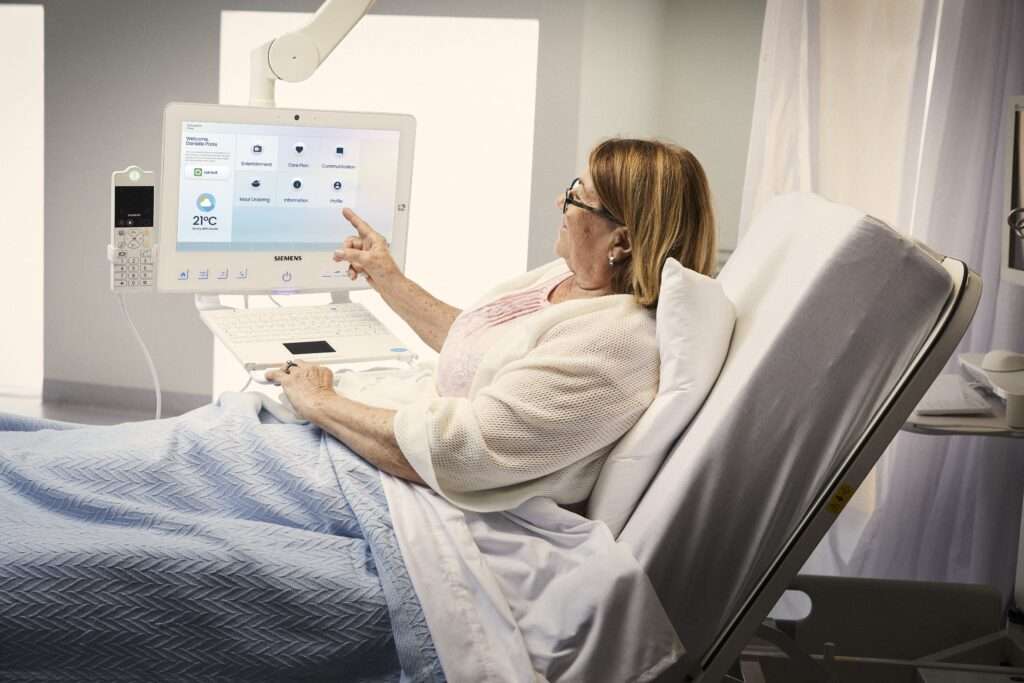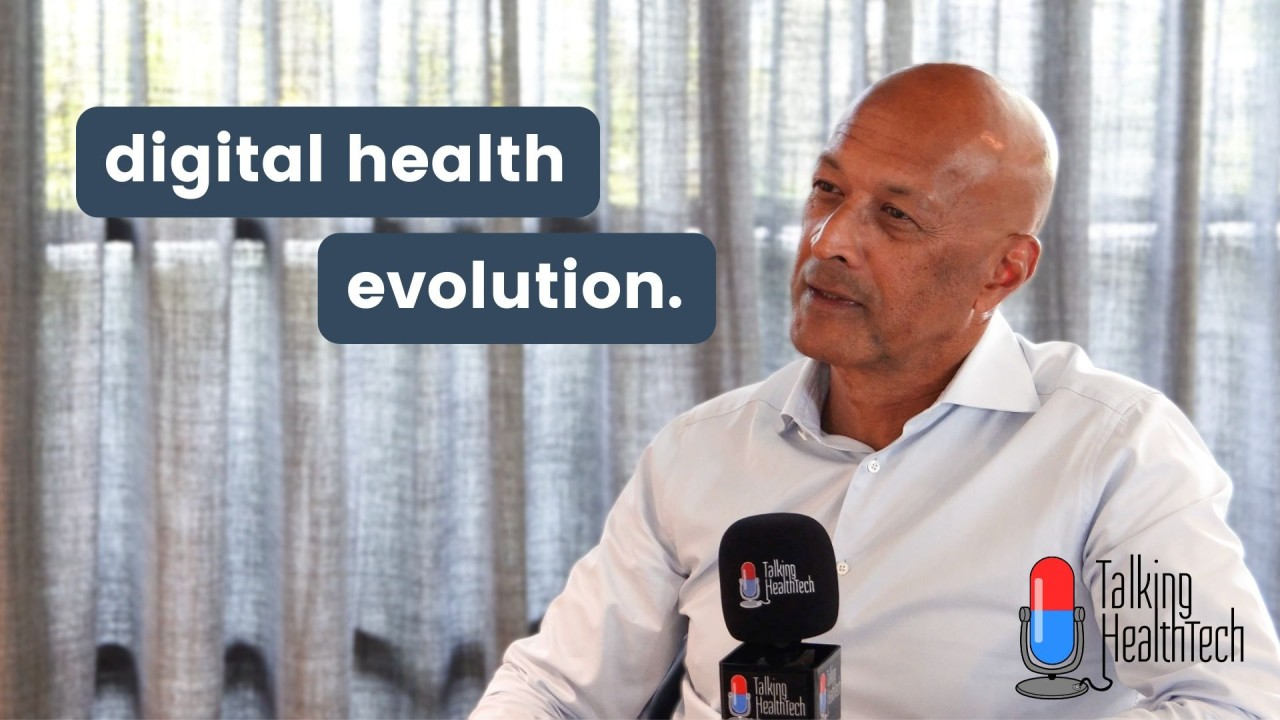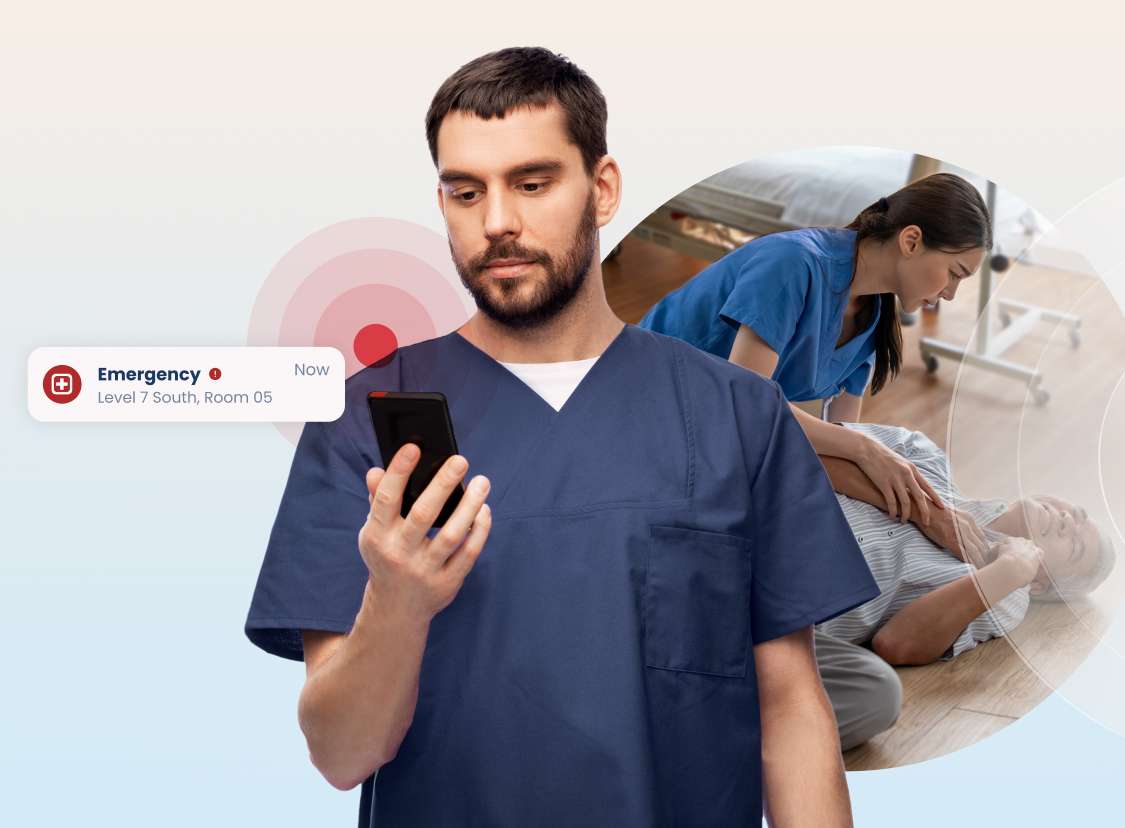- 5 min read
Towards Digital Smart Hospitals: Harness the Power of Enterprise Platforms
Rauland
Hospital
Enterprise

Share:
Today’s healthcare systems are often a maze comprising separate and disjointed systems that are difficult to navigate, failing to meet the evolving needs of patients or continuity of care. This leads to disjointed systems that are costly to manage and prone to errors, seriously impacting care quality and safety.
To overcome this, the answer lies in embracing a successful smart digital hospital strategy that is built around an enterprise platform that facilitates comprehensive solutions with streamlined, standardised workflows. This approach not only enhances care outcomes but also improves the experiences of both patients and clinicians.
Let’s dive deeper into how to design and implement an effective digital healthcare strategy using an enterprise platform approach.
A blueprint for success
- Foster partnership with a shared vision: align with partners who share your vision for better outcomes and have a proven track record in delivering similar projects
- Focus on end-to-end solutions: create comprehensive, interoperable solutions and set robust performance indicators that focus on results
- Stive for clinical excellence: gain input and guidance from clinical leadership for continuous improvement in patient care
- Adopt a platform strategy: implement a centralised, scalable enterprise platform for a consistent experience for patients and clinical staff across the entire healthcare network
Key elements to your platform solution
Now that the foundation of a digital hospital blueprint has been established, it’s important to consider an enterprise platform that delivers on this approach. Consider the following:
A quiet environment
Audible alert systems should be assessed for clinical relevance and discreetly delivered to relevant team members only.
Single device strategy
A unified smart device that streamlines data entry/retrieval, communications, notifications with location services and duress capability.
Location awareness
Eseful for equipment tracking, staff location support and patient monitoring.
Intelligent messaging engine
A system that integrates multi-mode messaging, combining text, voice (one-to-one and group) and paging into one central communication flow solution
Staff coordination and collaboration
Equip staff with data-driven insights to make informed decisions via customisable live reporting dashboards
Workflow design
Clinical systems that simplify, standardise and automate improved clinical outcomes
Patient engagement
Facilitate patient-centred healthcare delivery to make significant contributions to the patient experience.
Data and insights
Standardise data collection across the care continuum for continuous improvement and predictive analytics
So what does success look like?
For clinical staff
Staff receive the right notifications regardless of location and can respond promptly knowing the alerts they receive truly matter. Automation of low value tasks allows clinicians to spend more time on patient care.
For patients
Patients are actively engaged in their care and are cared for quickly, personally and conveniently in a quiet environment, enhancing their overall care experience.
For leadership
Healthcare leaders can execute on a unified digital health vision and deliver measurable value consistently. Based on rich, actionable data they can make future care decisions and investments confidently.
In conclusion
Our recommended approach to establishing a transformative digital smart hospital strategy that is future proof would take the following approach:
- Establish a shared vision partnership
- Engage clinical stakeholders
- Insist on open standards and robust interoperability
- Aggregate capabilities into an enterprise platform
- Create end-to-end workflows using enterprise systems
- A continuous improvement mindset through agile and iterative approaches
Unlock the potential of enterprise platforms for your facility with Rauland. Contact us today to find out how we can help.
Share:
Related Content

- 8 April 2025
- 5 min read
Jacqueline Leeds Appointed as New CEO of Rauland Australia and New Zealand, Ready to Drive Digital Health Innovation
We are delighted to announce the appointment of Jacqueline Leeds as Chief Executive Officer to lead Rauland Australia and New Zealand’s next phase of growth.
- Rauland

- 3 March 2025
- 5 min read
Transforming Outcomes by Advancing Sustainable Health
Steve Gomes, Managing Director of Rauland Australia and New Zealand, explores the evolving landscape of digital health and how technology continues to redefine healthcare services.
- Rauland

- 24 February 2025
- 5 min read
Enhancing Staff Safety at Maitland Hospital with Mobile Duress
Discover how Maitland Hospital implements mobile duress technology to safeguard people safety in healthcare.
- Hospital

- 8 April 2025
- 5 min read
Jacqueline Leeds Appointed as New CEO of Rauland Australia and New Zealand, Ready to Drive Digital Health Innovation
We are delighted to announce the appointment of Jacqueline Leeds as Chief Executive Officer to lead Rauland Australia and New Zealand’s next phase of growth.
- Rauland

- 3 March 2025
- 5 min read
Transforming Outcomes by Advancing Sustainable Health
Steve Gomes, Managing Director of Rauland Australia and New Zealand, explores the evolving landscape of digital health and how technology continues to redefine healthcare services.
- Rauland

- 24 February 2025
- 5 min read
Enhancing Staff Safety at Maitland Hospital with Mobile Duress
Discover how Maitland Hospital implements mobile duress technology to safeguard people safety in healthcare.
- Hospital